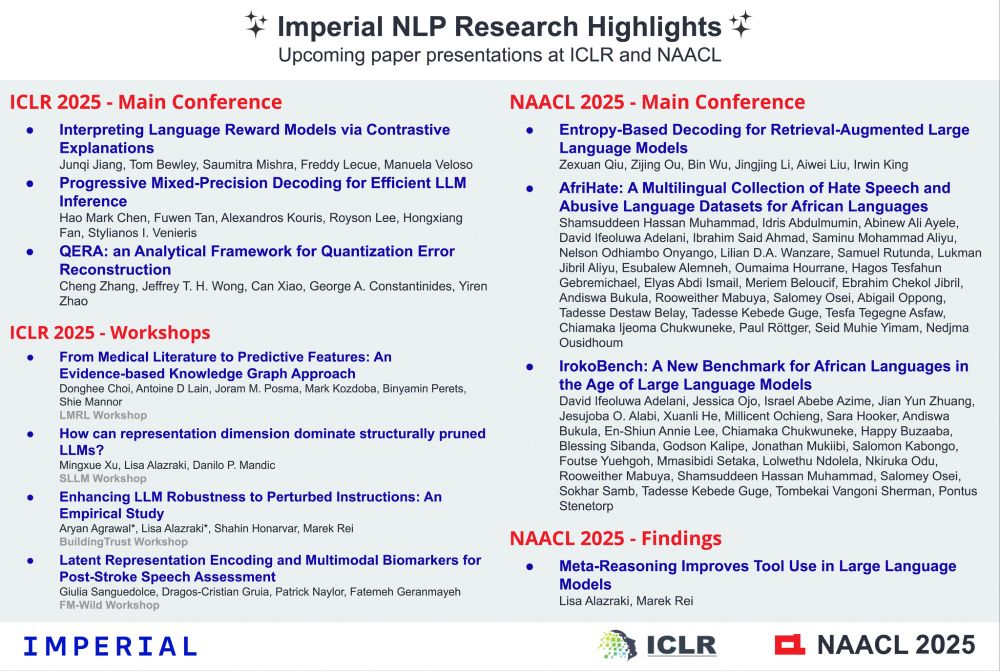Joe Stacey
@joestacey.bsky.social
2.5K followers
2.1K following
140 posts
NLP PhD student at Imperial College London and Apple AI/ML Scholar.
Posts
Media
Videos
Starter Packs
Pinned
Reposted by Joe Stacey
Joe Stacey
@joestacey.bsky.social
· Jul 22
Joe Stacey
@joestacey.bsky.social
· Jul 17
Joe Stacey
@joestacey.bsky.social
· Jul 17
Joe Stacey
@joestacey.bsky.social
· Jul 2
Joe Stacey
@joestacey.bsky.social
· Jul 2
Joe Stacey
@joestacey.bsky.social
· May 27

How to Improve the Robustness of Closed-Source Models on NLI
Closed-source Large Language Models (LLMs) have become increasingly popular, with impressive performance across a wide range of natural language tasks. These models can be fine-tuned to further improv...
arxiv.org
Joe Stacey
@joestacey.bsky.social
· May 27
Joe Stacey
@joestacey.bsky.social
· May 27
Joe Stacey
@joestacey.bsky.social
· May 18
Joe Stacey
@joestacey.bsky.social
· May 18
Joe Stacey
@joestacey.bsky.social
· May 18
Joe Stacey
@joestacey.bsky.social
· May 18
Reposted by Joe Stacey
Joe Stacey
@joestacey.bsky.social
· Apr 28
Joe Stacey
@joestacey.bsky.social
· Apr 23
Reposted by Joe Stacey
Joe Stacey
@joestacey.bsky.social
· Apr 14
Joe Stacey
@joestacey.bsky.social
· Apr 5
Joe Stacey
@joestacey.bsky.social
· Apr 5






